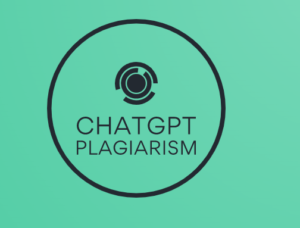Plagiarism, the act of using someone else’s work without giving proper credit, is a serious offense that can have legal consequences. While not all cases result going jail for plagiarism, there are situations where it can result in criminal charges.
In this article, we will explore the legal aspects of plagiarism and its potential penalties.
What is Plagiarism?
Plagiarism occurs when someone presents another person’s ideas, words, or creations as their own without proper attribution. It can involve copying and pasting text, paraphrasing without citation, or even using someone else’s ideas without acknowledgement. Plagiarism is not limited to academic settings; it can occur in various fields, including journalism, publishing, and online content creation.
Legal Penalties for Plagiarism
The legal penalties for plagiarism vary depending on the jurisdiction and the severity of the offense. In some cases, plagiarism is considered a civil matter, leading to potential lawsuits and monetary damages. However, in more severe cases, it can be treated as a criminal offense, resulting in going jail for plagiarism. Therefore, one should be mindful for legal penalties for plagiarism.

GET ACADEMIC WRITING HELP
Your assignment won’t be delivered on time: you’ll get it beforehand. Review your work immediately and ask for free revisions right away. Get extensive help in:
 Online Class
Online Class  Exam
Exam  Homework
Homework
 Assignment
Assignment  Essay Writing
Essay Writing  Dissertations
Dissertations
Imprisonment Duration for Plagiarism
The duration for going jail for plagiarism varies widely and depends on several factors, such as the extent of the plagiarism, the harm caused, and the specific laws of the jurisdiction. In some countries, the maximum duration for going jail for plagiarism in severe cases can range from a few months to several years.
However, it’s important to note that legal penalties for plagiarism is generally reserved for extreme instances, such as large-scale academic fraud or copyright infringement.
Plagiarism in Universities
In educational institutions, especially plagiarism in universities is taken very seriously. If a student is found guilty of plagiarism, they may face disciplinary actions imposed by their university or college. These actions can range from academic penalties, such as failing the assignment or course, to more severe consequences like suspension or expulsion.
Additionally, the student’s academic record may be permanently tarnished, affecting future educational and employment opportunities that is actually in way equivalent to going jail for plagiarism.
Preventing Plagiarism
To avoid the potential legal and academic consequences of plagiarism like going jail for plagiarism, it is crucial to understand how to properly cite and attribute sources. Here are a few tips for preventing plagiarism:
Familiarize yourself with citation styles
Learn and follow the citation style recommended by your institution or field of study, such as APA, MLA, or Chicago. These styles provide guidelines for citing sources correctly and thus you will be preventing plagiarism.
Use plagiarism detection tools
Utilize online plagiarism detection tools to check your work for unintentional plagiarism. These tools compare your text against a vast database of published works to identify potential matches.
Understand paraphrasing.
When paraphrasing, make sure to rephrase the original ideas in your own words and provide proper citations. Simply changing a few words or sentence structure while keeping the original meaning is still considered plagiarism. By writing the context in your own words would help in preventing plagiarism.
Keep track of your sources
Scholarly Help on the other hand have a great overall expert academic writers which got the real expertise in delivering the best non-plagiarized and zero AI-written content essay writing services.
Maintain a comprehensive record of all the sources you consult during your research. This includes books, articles, websites, interviews, and any other relevant materials. Properly cite these sources in your work to give credit where it is due and thus preventing plagiarism unintentionally also.
Conclusion
Plagiarism can have serious legal and academic consequences and going jail for plagiarism is not necessary except for more intense consequences. It is essential to understand the potential risks involved. By properly citing and attributing sources, students, writers, and professionals can ensure they are not infringing on intellectual property rights. Remember, integrity and originality are crucial in any creative or academic endeavor.
Frequently Asked Questions
What is the punishment for plagiarism?
The punishment for plagiarism can vary depending on the severity of the offense and the jurisdiction. In some cases, it can lead to civil lawsuits, monetary damages, or even criminal charges that may result going jail for plagiarism.
How much plagiarism is illegal?
The degree of plagiarism that is considered illegal also varies, but any act of presenting someone else’s work as your own without proper attribution is generally considered a violation of copyright laws and academic integrity standards.
Is plagiarism a big crime?
Plagiarism is widely regarded as a serious offense due to its potential consequences and ethical implications. It undermines intellectual property rights, academic integrity, and the trust between creators and their audiences. In some serious cases, going jail for plagiarism is also seen.
Is plagiarism an academic crime?
Yes, plagiarism is considered an academic crime. Educational institutions have strict policies and regulations in place to combat plagiarism and protect the integrity of academic work. Students who engage in plagiarism can face severe penalties, including failing grades, academic probation, or even expulsion.
How serious is plagiarism in university?
Plagiarism is taken very seriously in universities. It can have significant consequences on a student’s academic career, including tarnished reputation, damaged relationships with professors and peers, and limitations on future educational and employment opportunities.
What is the most severe form of plagiarism?
The most severe form of plagiarism includes cases of deliberate and extensive intellectual theft, such as wholesale copying of entire works or passing off someone else’s work as one’s own in a professional or academic setting. Such acts often result in severe legal and academic consequences that includes going jail for plagiarism.
What is the lowest plagiarism score?
There is no specific “lowest” plagiarism score, as plagiarism is not measured on a numerical scale. Plagiarism is determined based on the extent of the copied material and the intention behind it. Even minimal instances of plagiarism can be considered violations of intellectual property rights and academic integrity, leading to penalties.


